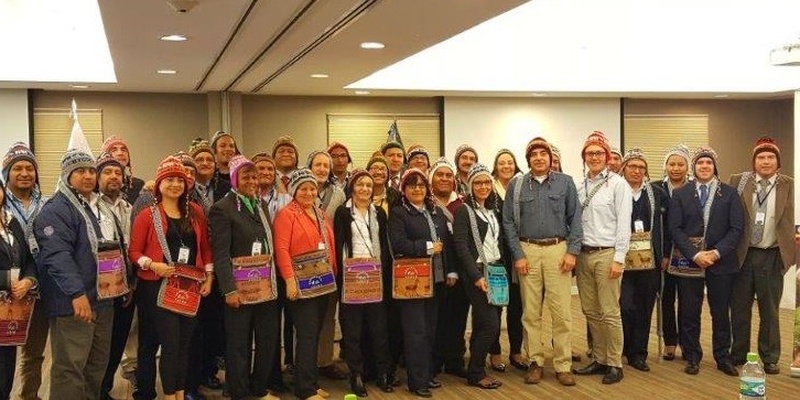The 2017 IPPC Regional Workshop for Latin America Successfully Held in Cusco Peru
Posted on Jue, 14 Sep 2017, 12:21

The 2017 IPPC Regional Workshop for Latin America was held from 05 - 08 September 2017, in Cusco, Peru. The Workshop was jointly organized by the IPPC Secretariat and the Inter-American Institute for Cooperation on Agriculture (IICA), the Regional Plant Protection Organizations (RPPOs) Comunidad Andina (CAN), Comite Regional de Sanidad Vegetal del Cono Sur (COSAVE) and Organismo Internacional Regional de Sanidad Agropecuaria (OIRSA), as well as the Peru National Plant Protection Organization (NPPO), SENASA Peru.
The workshop was chaired by Mr Ezequiel Ferro (Argentina) and vice-chaired by Ms Vilma Gutarra (Peru). The Executive Director of SENASA Cusco, Mr José Sotomayor Pineda, welcomed the participants and expressed his satisfaction by hosting the workshop, where 35 participants from 17 countries were present. It was the first time that all RPPOs of the region (CAN, COSAVE and OIRSA) and a RPPO outside of region, NAPPO, as observer, attended the Latin America Regional Workshop. The IPPC Secretariat, represented by Ms Adriana Moreira, highlighted the objectives of regional workshop, noting that it aims at strengthening phytosanitary capacities for effective enforcement of internationally harmonized standards for phytosanitary measures to prevent the introduction of plant pests to their countries, while facilitating the international trade of plant products. She also noted that Latin America is one of the main food producer and exporter regions in the world and has enormous natural wealth, a thriving agricultural industry and a family agriculture sector that is fundamental for the food security of its population.
The objectives of the workshop were to analyze and provide comments on draft ISPMs currently under consultation, including the International movement of cut flowers and foliage (2008-005), Requirements for the use of fumigation treatments as a phytosanitary measure (2014-004), and 2017 Amendments to ISPM5 (Glossary of phytosanitary terms) (1994-001). The workshop also updated participants on recent developments of the IPPC including activities related to ISPM14 and the Beyond Compliance tool, FAO and IPPC monitoring and evaluation activities related to emerging issues in plant health, the IPPC Call on Phytosanitary Treatments, the benefits of the Phytosanitary Capacity Assessment Tool (PCE), ePhyto project, sustainable funding and the International Year of Plant Health for 2020. The participants also actively exchanged their experiences at the regional level with discussion surrounding: a) emerging pests with relevance for the region, such as Schistocerca cancellata, Fusarium oxysporum f. sp. cubense race 4 and Trogoderma granarium; b) Exchange of information on concerns and activities on the relationship between climate change and emerging and re-emerging pests; and c) Success stories of implementation of pest control or management from control programs.
Spanish translations of workshop materials were graciously provided by Comunidad Andina (CAN). The IPPC would like to thank all contributors, and co-organizers for their instrumental contributions and support in making this workshop a success for its participants.
The 2017 IPPC Regional Workshop for Latin America report will soon be available at IPPC Regional Workshops webpage.



